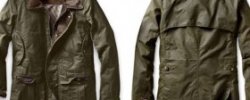Whenever I considercarefully what Kevin Plank, the CEO of Under Armour, features happening — operating an international sports apparel business that smashed $3 billion in sales this past year; establishing an innovative new resort in Fells Point over the harbor from UA's Baltimore HQ; moving completely a gleaming eyesight for redevelopment of Port Covington, including a whiskey distillery; raising thoroughbred racehorses on historical Sagamore Farm — all I'm able to say is: Whew!
Plank has proven is an intelligent businessman and a resident of Baltimore and Maryland.
The thing that is apparently lacking from Plank's huge plans is a factory that could place their other Marylanders to work making a few of the items Under Armour offers all over the world.
I understand that seems like a charming concept. Us clothing and shoe organizations have-been manufacturing their products in Latin America and Asia for so long that, by now, many of us believe it may not be otherwise again. We believe those very cool but pricey t-shirts, jeans and jackets bearing the UA logo would merely price excessively if they had been made right here. Labor can be so less costly in Mexico and China, and yadda yadda yadda.
But the reason why cannot Under Armour stitch together some of its items right here — in a Maryland town or city, in which jobs are essential — and promote them as "UA built in the USA"?
Doesn't that statement have cachet featuring its young, hip and healthy customer base? Would the both women and men whom currently like and buy UA services and products pay some bucks more for garments made at Port Covington, or on the Eastern Shore or, state, near Cumberland in Allegany County?
Sam Poser, an expert analyst regarding the recreations clothing and shoes trade for Sterne Agee investment group, said in a phone interview that, if Under Armour could maintain quality but still earn money, domestic manufacturing could be a possibility.
Product quality, he said, is key to the UA brand name, and item quality is linked with manufacturing expenses. And inexpensive labor makes product quality sustainable. I get that. All of us do.
But it appears that, if Under Armour had been to produce an option to own a small production operation right here, it may save other prices, beginning with shipping.
Footwear would be challenging make domestically, Poser stated, because of the machinery required, but stitching businesses, conversely, may not be since high priced to ascertain into the U.S.
Manufacturing shoes and clothing is not totally foreign. New Balance footwear, like, tend to be manufactured in the United States.
Does "built in USA" nonetheless matter to Americans?
Is every thing about cost?
The way I see it, Under Armour makes a high-quality item, items that's developed to last, and thus far men and women are not appearing in your thoughts investing in it.
Really, i am not probably buy a UA product weekly, every month, not annually. But I'm ready to spring for the high quality. And I might spring more regularly if I knew the item I became buying originated from a factory in Port Covington or Easton or Frederick.
You'll call that old-school thinking, but it is in addition green reasoning: goods produced in the U.S. are likely have a smaller carbon footprint. First and foremost, they might offer jobs for people in a city or county where the unemployment typically runs greater than Maryland's statewide rate.
Recently, Under Armour tried to woo NBA All-Star Kevin Durant to endorse UA's basketball footwear over Nike's. Plank's company offered Durant $280 million over a decade. Durant nonetheless went with Nike, but clearly, since it surpasses Adidas and gains a bigger bit of the sports footwear and apparel market, Under Armour has actually money to spend.
Perhaps the company could invest a number of it in US production.
"Imagine should they took $280 million that they had been planning to pay Kevin Durant and utilized that to cover U.S. workers, " David Scharff, a Baltimore doctor, wrote myself in a contact once I proposed in a recent line that Under Armour enter production at home. "What number of Baltimoreans could they employ with $28 million per year? Two-hundred-and-eighty employees making $100, 000 (pay, 401k, health advantages). Just what would it be well worth in advertising and marketing price? What advantage over Nike would that be in the market?"
It really may seem like a method to differentiate an item range: "UA manufactured in america."
Based on its site, the company manufactures some "quick turn" items for high-profile athletes, groups and leagues in its circulation facility in Glen Burnie, "an immaterial percentage of our total net revenues."
But that is to state that expanding that operation the retail market — and marketing UA manufactured in america — won't start a bigger home for the company?
During the last few weeks, we delivered several emails to Under Armour asking if the organization had considered manufacturing some services and products on U.S. earth. When they previously make contact with me personally, I'll let you know what they say.












